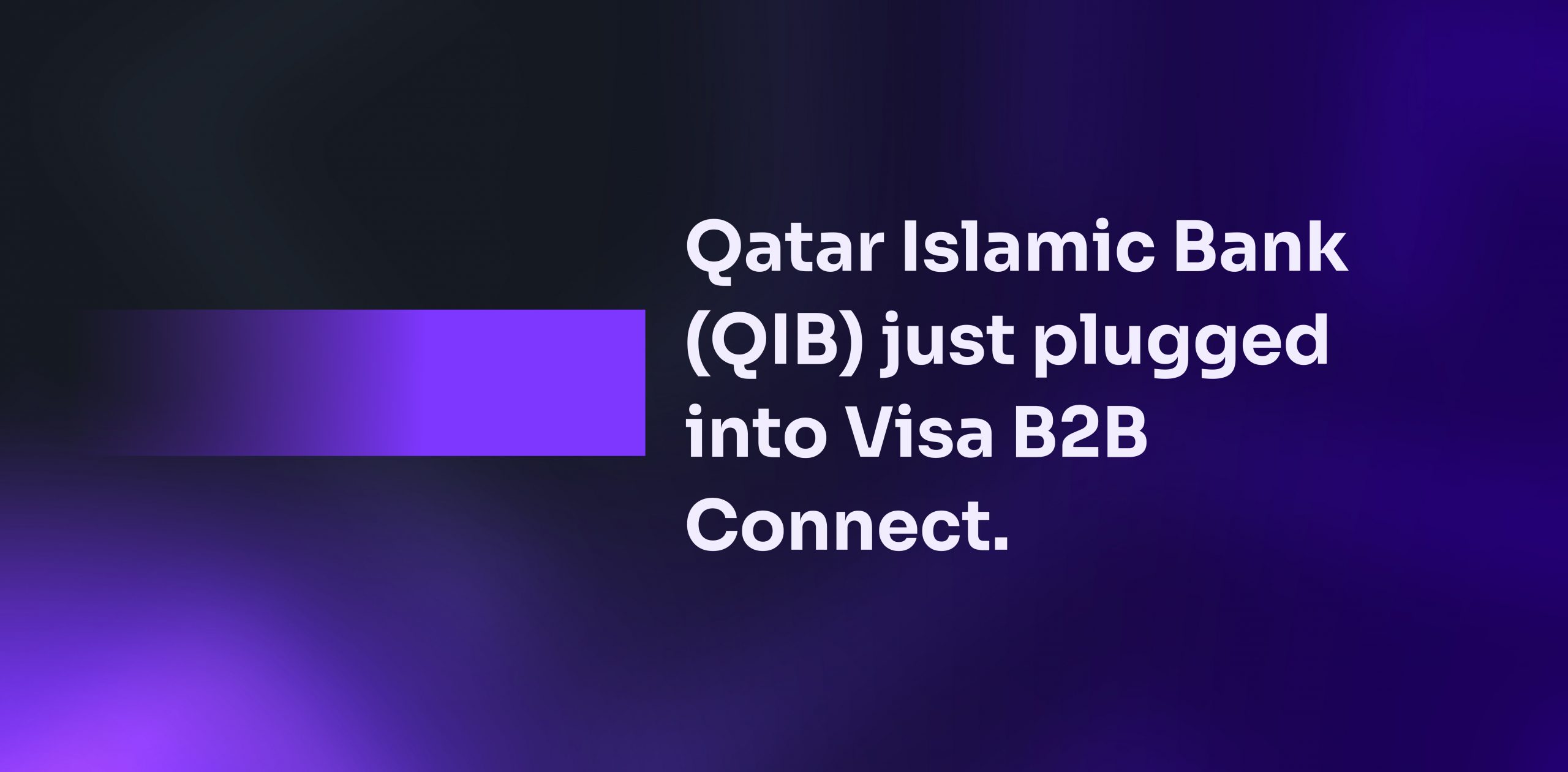Qatar Islamic Bank (QIB) just plugged into Visa B2B Connect, giving its corporate clients a one-hop route for B2B cross-border payments in Africa, and everywhere else, to 120 countries. The new rail promises faster settlement, clearer fees, and full payment visibility, all inside a permissioned Visa ledger.
OK, but what exactly is Visa B2B Connect?
Picture a private express lane for big-ticket business payments. Instead of money bouncing through a string of correspondent banks on SWIFT, funds move straight from Bank A to Bank B on Visa’s ledger. That trims intermediaries, locks in one upfront FX quote, and lets finance teams track every step in near real time.
Why this matters to African businesses for cross-border Africa
Below are four quick questions that reveal why the partnership reshapes B2B cross-border payments Africa now and over the next decade.
1. Trade corridors: Can African firms use it yet?
Yes. QIB customers can already pay suppliers in 120 markets, and banks like Access Bank Nigeria have adopted the same rail. Kenyan tea exporters or Nigerian contractors working in Doha could see cash hit their accounts in hours, not days, smoothing inventory cycles and project cash flow.
2. Competitive pressure: Will fees for cross-border Africa really fall?
With fewer middlemen, businesses face a single fee and a locked-in FX rate. That means better margins for exporters shipping goods to Qatar or importers routing Asian invoices via Doha. Expect more tier-1 African banks to test Visa B2B Connect, Mastercard Cross-Border Services, or RippleNet so clients don’t defect.
3. Market growth: How big is the prize?
Cross-border B2B flows involving Africa are projected to jump from about USD 329 billion in 2025 to USD 1 trillion by 2035, with total global flows linked to the continent topping USD 3 trillion this decade as fintech rails mature. Modern infrastructure is no longer a perk; it is core plumbing for trade.
4. Interoperability plays: What about PAPSS?
Inside Africa, PAPSS lets businesses settle in local currencies without touching the dollar. Visa B2B Connect complements that by covering extra-African legs (Qatar, Europe, the US). Smart treasurers can stitch the two rails together for end-to-end coverage, cutting USD detours and settlement lags.
What could hold this back for cross-border Africa
- Currency controls and thin FX liquidity in certain African markets can still slow a payout if the local clearing bank runs short.
- Integration overhead. Banks need ISO 20022-ready cores or open APIs to join, which smaller institutions may find costly.
- Regulatory comfort. Central banks will scrutinise any rail that seems to sidestep parts of the correspondent network, even though Visa keeps standard AML and KYC checks in place.
Bottom line
QIB’s move shows big card networks are muscling into territory long dominated by SWIFT. For Africa, that means cheaper Gulf trade settlements, fresh pressure on local banks to modernise, and a likely wave of fintech partnerships as B2B cross-border payments Africa races toward the trillion-dollar mark.
This content is informational and should not be considered financial or legal advice.



